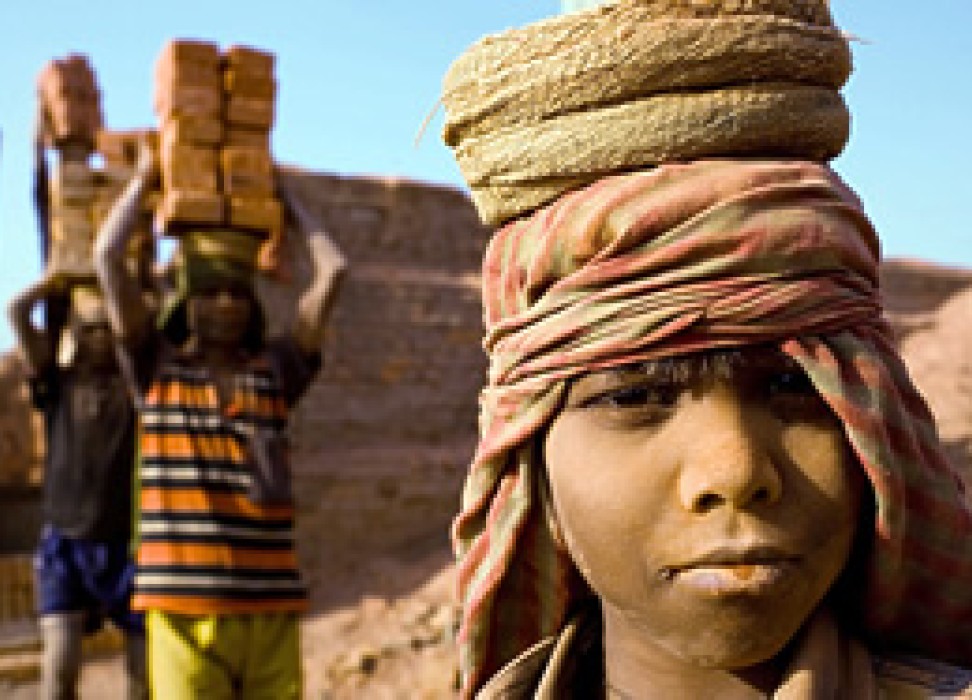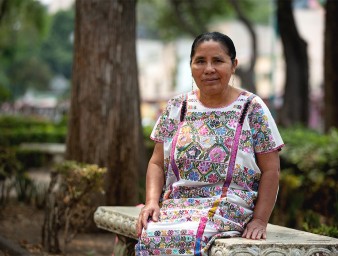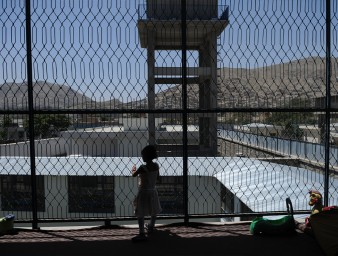Migrant workers: their right to health care
04 July 2013

Every year an estimated 105 million people travel abroad to work. The money they send back to their countries of origin amounts to more than official development assistance to developing countries.
Many of them find so-called “3 D jobs”, dirty dangerous and degrading occupations that leave them exposed to a range of abuses, especially denial of their right to health. Language and cultural differences often exacerbate the risks taken by both regular and irregular migrant workers, so much so that many individuals who left their countries in sound physical and mental health, end up in a debilitated state because of States’ failures to provide primary and ongoing care, both physical and mental.
In a report to the Human Rights Council, the Special Rapporteur on the right to health, Anand Grover describes the desperate conditions confronted by many migrant workers who may be “cramped or hidden in boats or trucks… [who] may also face physical and sexual violence during transit… [and] limited or no health care during transit and in transit countries.”
Grover identifies the types of employment that many unskilled migrant workers are drawn to and which are particularly hazardous and where their right to access medical care is limited or does not exist at all. Construction work is inherently dangerous, he says because it involves scaffolding, unfinished structures and the use of powerful machinery. “Falls have been found to be more common among migrant workers,” Grover says.
It is the responsibility of States to ensure occupational health standards are met, he says, that proper training and protective clothing is provided, and that when injuries do occur the migrants have access to medical services, insurance and compensation.
Likewise for farm workers who are often especially disadvantaged because of their isolation. “Informal arrangements and lack of coverage under labour and occupational health and safety laws are common,” the Special Rapporteur says.
Even when insurance and compensation arrangements are in place, Grover says often these workers are unaware of their entitlements. It is essential that both the sending and receiving countries make sure that migrant workers are well informed of their rights. Migrant and community health centres, he notes, are successful models for providing financially affordable and physically accessible care.
There are more than 50 million migrant domestic workers worldwide and of these most are women. Grover says this group commonly experiences a range of violations including, food and sleep deprivation, denial of medical treatment, squalid living conditions, non-payment of wages, excessive work hours and psychological, physical and sexual abuse. “The situation of migrant domestic workers has even been described as ‘modern-day slavery’”, he says.
Another of the 3 D jobs, according to the Special Rapporteur, is sex work. These people have a disproportionate risk of acquiring sexually transmitted diseases, and of being subjected to violence and discrimination. Criminalization of sex work in many countries exacerbates the abuse of their rights. Governments, he says, must ensure as with all of the other high risk occupations that these migrant workers have access to the appropriate information and resources, which guarantee their right to health, both physical and psychological.
Compulsory testing of migrants for certain conditions should be scrapped, Grover says on the basis that it violates their right to informed consent, is discriminatory and counter-productive to improved public health because it encourages concealment.
The Special Rapporteur says governments should be working to overcome the widely held view that migrants “don’t deserve” health care. Grover recommends the establishment of labour corridors enforced through negotiated bilateral agreements, which conform with the right to health framework, and which clearly define the rights of migrant workers, the obligations of recruitment agencies, employers and governments.
2013 marks the 20th anniversary of the World Conference on Human Rights, which led to the adoption of the Vienna Declaration and Programme of Action and the establishment of a High Commissioner for Human Rights. The creation of the Office of High Commissioner gave a new impetus to the recognition of human rights principles which has seen fundamental progress in the promotion and protection of human rights. The Human Rights Office promotes the integration of human rights norms and standards in all aspects of migration policy at the national, regional and international levels.

VIEW THIS PAGE IN:



